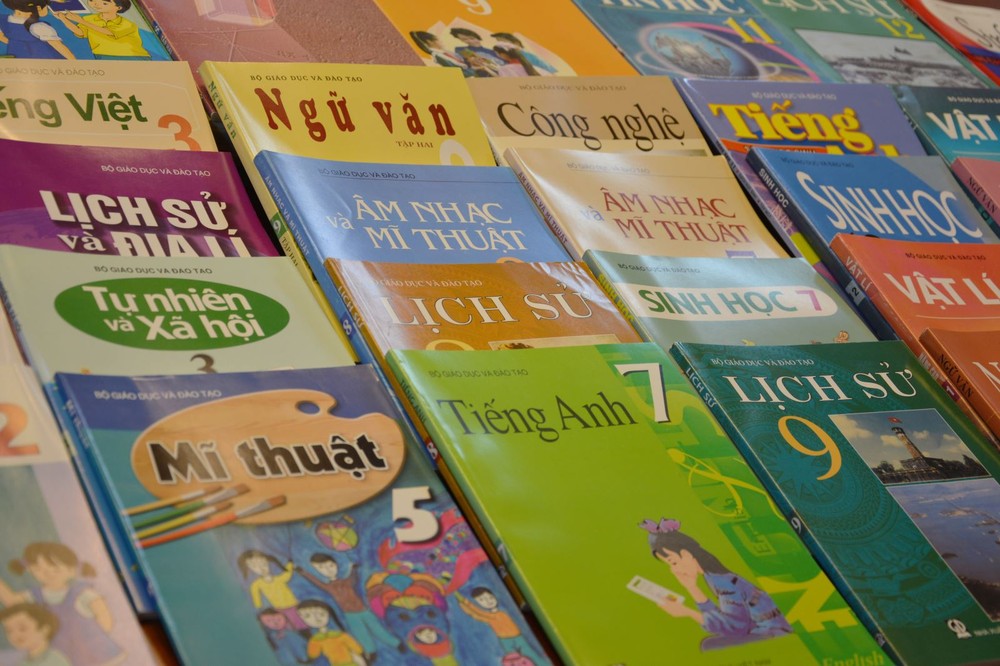
One of the most striking provisions in Resolution 281/NQ-CP—where the Government sets out its action program to implement Resolution 71-NQ/TW of the Politburo on breakthroughs in education and training—is the requirement to adopt a single set of textbooks nationwide starting from the 2026–2027 academic year.
Under the resolution, the Government directs the Ministry of Education and Training (MoET) to review and finalize the general education curriculum, increase instructional hours for science, technology, informatics, and the arts; ensure the provision of a unified set of textbooks for nationwide use from 2026–2027; and pursue a roadmap toward supplying free textbooks to all students by 2030.
The Government further calls for the creation of special incentive policies to attract top-performing students to the teaching profession, while improving teacher training and professional development for both educators and education administrators. It urges the expansion of training programs and projects to develop the teaching workforce, coupled with greater support for teachers pursuing advanced studies both domestically and abroad.
The resolution emphasizes strengthening foreign language teaching and learning, with a gradual roadmap to make English the country’s second language in schools. It also promotes the teaching of neighboring countries’ languages and the use of English as the medium of instruction for certain subjects, where conditions allow.
MoET is tasked with spearheading the development of a system of high-quality vocational education institutions that meet international standards, implementing the vocational education network master plan for 2021–2030 with a vision to 2045, and continuing reforms to enhance vocational education up to 2030. It must also design regulations for a vocational secondary education track for those completing lower secondary school, alongside criteria for assessing and recognizing accumulated professional competencies.
In addition, the ministry is to devise policies to attract experts and highly skilled workers into teaching and vocational training, and establish mechanisms to commission and finance vocational teacher training programs from the State budget.
The resolution also assigns MoET to coordinate with other ministries and agencies in developing a higher education development framework strategy for 2026–2035, with a vision to 2045. This includes plans to restructure the higher education system by merging or dissolving institutions that fail to meet required standards. The Government further requires MoET to prepare a scheme to integrate research institutes with universities, streamline governance by eliminating intermediate management levels, and consider transferring certain universities to local authorities to better align training with regional workforce needs.
At the same time, MoET must draw up a plan to channel substantial investment and introduce breakthrough policies to build three to five elite universities, modeled on world-class research institutions, tasked with nurturing national talent.
Currently, the market offers three full sets of textbooks along with several stand-alone titles. All general education students are using the new-generation textbooks, with schools selecting teaching materials based on their actual conditions and needs.
























